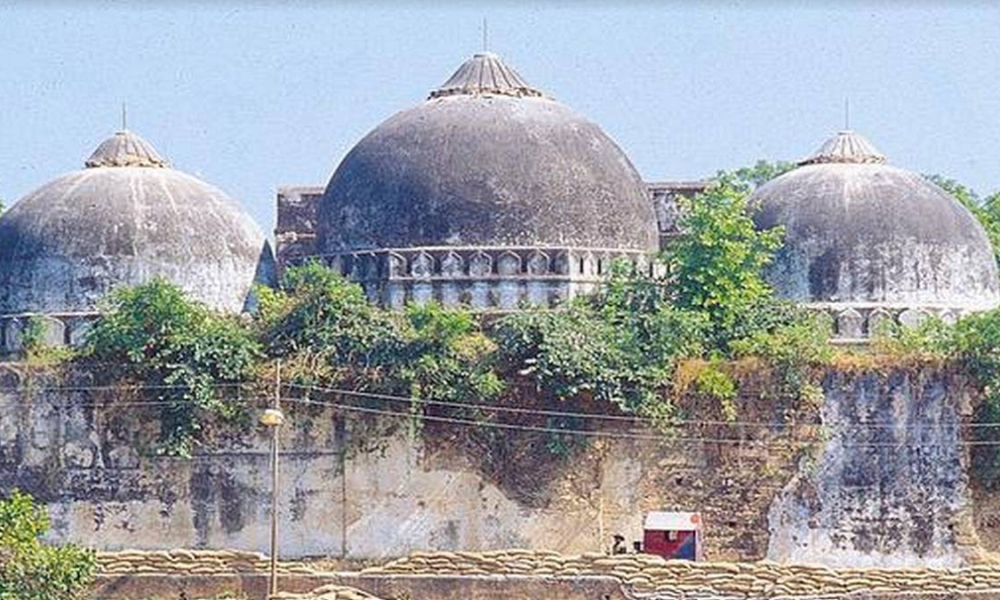After interrogating 351 witnesses, sifting through 600 documents and listening to countless videotapes and nearly 30 years after the incident, Judge Surendra Kumar Yadav of the Central Bureau of Investigation (CBI) special court declared that the demolition of the Babri Masjid in 1992 was not an act of conspiracy; accordingly all the 32 accused including veteran BJP leaders like L.K. Advani, Murli Manohar Joshi and Uma Bharti were acquitted of any wrongdoing.
Will this verdict bring final closure to one of the most contentious controversies of modern India or will it trigger another endless court battle, perpetuate another social controversy and drag us back willy-nilly into the same quagmire of distrust and disharmony?
To allay such a pessimistic consequence, it is vital that we objectively analyze the merits of the current verdict to instill a sense of confidence in all Indians. The tendency to soothe rather than incite, the urge to resolve rather than exploit must be the motive.
However, negativists in our midst are out in full force, crying foul and casting aspersions on the veracity of the pronouncement. Two leading newspapers published scathing editorials excoriating the judgement, but they fail to convince. In fact, the arguments in these ideologically nuanced tirades come across as frivolous tattle; the line of reasoning is embarrassingly pedestrian and intellectually mediocre to be taken seriously.
For one, the claim that the current verdict is at odds with the findings of the Liberhan Commission and, therefore, unacceptable is not a valid riposte. One editorial states, “More than 10 years ago, the Justice Liberhan Commission had concluded that the evidence underlined that the mobilisation of the kar sevaks was neither spontaneous nor voluntary… was orchestrated and planned”.
Divergence from the Liberhan report does not automatically make the present verdict suspect. The Liberhan Commission was instituted by Congress PM P.V. Narasimha Rao in 1992, had a tenure of 16 years and finally submitted its report to PM Manmohan Singh in 2009. The report itself is far from impeccable and in places sounds like a partisan document intent on political vendetta: It even implicates Atal Bihari Vajpayee even though he was not present at the site. Not surprisingly, the Commission’s sole Counsel Anupam Gupta disassociated himself from the report prior to his release due to differences with Justice Liberhan.
Additionally, there is a difference between a Commission and a court of law. A commission has no legal binding and answers to a burden of proof that is less stringent than that of a court. Pieces of evidence found admissible by the commission failed to pass the test in court leading Judge Surendra Kumar Yadav to conclude that there was no credible evidence to support a case for conspiracy.
To bolster the charge that the destruction was a preplanned event, another editorial argues: “The demolition of the mosque was preceded by months of political mobilisation across the country that whipped up sentiment. Multiple eyewitnesses and journalists have reported how mobs swelled around the disputed structure for days before the demolition, with the authorities doing little to disperse the crowd. Reports also underlined how the police stood by while groups of young men with pickaxes, shovels and ropes, scaled the domes of the fragile structure, with the intent of bringing it down.”
True, the Babri Masjid was demolished and that young men with pickaxes were found at the site and it is also true that Advani led a pan Indian BJP movement that preceded the demolition of the mosque. But none of these pieces of information confirm a conspiracy. These are assumptions still subject to verification in a court of law. Incontrovertible proof is required to link the movement to the demolition which was not forthcoming; hence the verdict.
Faizan Mustafa, an expert on constitutional law, and Aymen Mohammad, a doctoral student at NALSAR University of Law, Hyderabad, in an op-ed in a prominent newspaper indulge in a lot of legalese to criticise the verdict but are unable to come up with a cogent argument or a plausible conclusion.
They claim: “The accused were charged with various sections of the Indian Penal Code pertaining to incitement to violence (Sections 153A and 153B), conspiracy to commit a crime (Section 120B), and unlawful assembly (Section 149). The overarching import of these charges was that there was a joint agreement on the part of the accused to demolish the Babri Masjid on December 6, 1992. For criminal conspiracy, mere agreement is punishable and for unlawful assembly, mere presence is enough to make one liable. There can be no two opinions on whether Advani and others were members of an unlawful assembly.”
If this was such a straightforward case, how is it that the learned judge did not find an iota of proof against the accused?
Much water has flown under the bridge since the destruction of the Babri Masjid. The Supreme Court has accepted the presence of an ancient Hindu temple at that site and awarded Hindus the right to build a grand Ram temple there; concomitantly giving Muslims an alternative place to construct a mosque.
Ayodhya has moved on, and so has India. There is no need to look back. Challenging the verdict is redundant, retrogressive and unnecessarily disruptive; it is a deterrent to future peace and harmony. The CBI must not appeal against the verdict.























